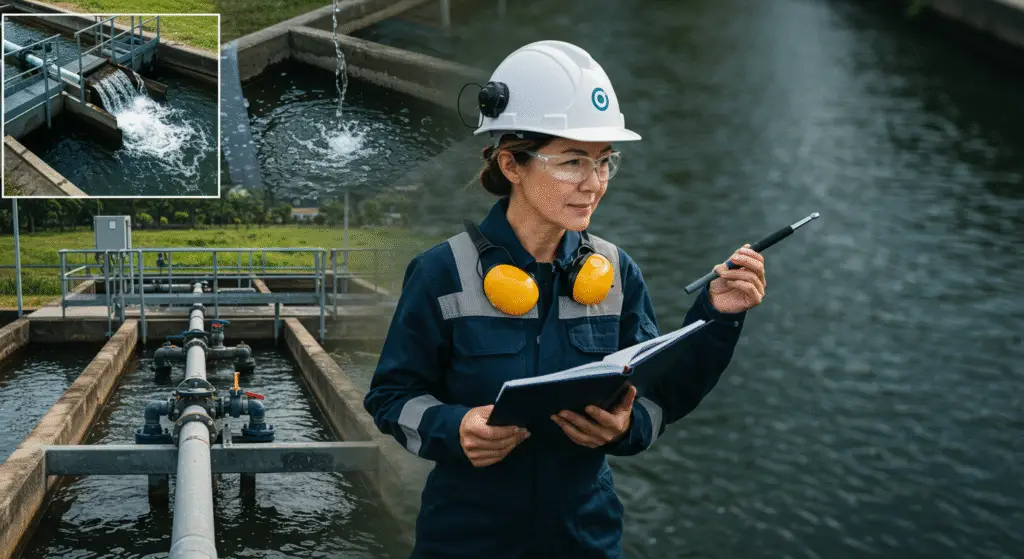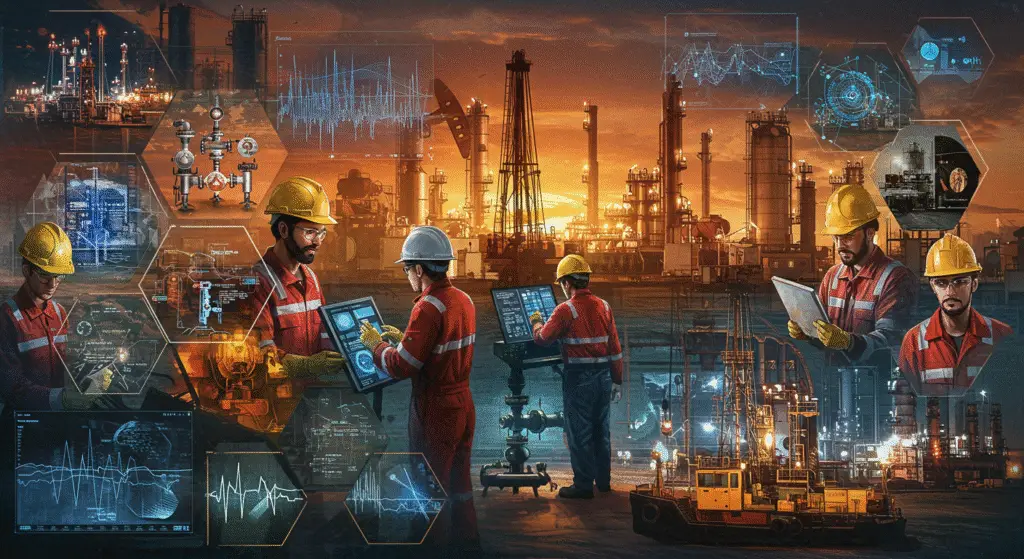Which engineer will be in demand in 2030?

engineer will be in demand
As the world rapidly evolves and technological advancements continue to reshape nearly every aspect of our lives, the demand for skilled engineers in the coming decade and beyond will be paramount. From addressing the pressing challenges of climate change and sustainability to harnessing the transformative power of emerging technologies, the engineers of the future will play a pivotal role in driving progress and shaping the world we inhabit.
In this comprehensive article, we will explore the engineering disciplines that are poised to be in high demand as we approach the year 2030 and beyond, examining the key factors and trends that will drive this increased need for specialized expertise and innovative problem-solving.
Renewable Energy and Sustainability Engineers

As the global community increasingly recognizes the urgency of addressing climate change and transitioning towards a more sustainable future, the demand for engineers specializing in renewable energy and sustainable systems will skyrocket in the coming years.
Renewable Energy Engineers:

With the accelerating shift towards clean energy sources, such as solar, wind, and geothermal power, the need for skilled engineers who can design, develop, and optimize these technologies will be paramount. These professionals will be responsible for improving the efficiency, reliability, and cost-effectiveness of renewable energy systems, as well as integrating them seamlessly into existing power grids and infrastructure.
Sustainability Engineers:

In addition to renewable energy, the demand for engineers who can develop sustainable solutions across various industries will also be on the rise. From designing eco-friendly buildings and transportation systems to optimizing industrial processes and waste management, sustainability engineers will play a crucial role in helping organizations and communities minimize their environmental impact and transition towards a more circular economy.
As governments, businesses, and individuals become increasingly committed to addressing climate change and achieving ambitious sustainability goals, the expertise of renewable energy and sustainability engineers will be in high demand, driving innovation and catalyzing the transformation towards a greener, more resilient future.
Environmental and Water Resources Engineers

Closely tied to the growing focus on sustainability, the demand for environmental and water resources engineers will also surge in the coming years, as the world grapples with the impacts of climate change, population growth, and resource scarcity.
Environmental Engineers:

These professionals will be tasked with developing innovative solutions to mitigate and adapt to the environmental challenges posed by issues such as air and water pollution, waste management, and ecosystem degradation. From designing and implementing advanced wastewater treatment systems to developing strategies for managing hazardous materials, environmental engineers will play a crucial role in protecting the health of our planet and its inhabitants.
Water Resources Engineers:
With the increasing strain on water supplies due to climate change, population growth, and agricultural demands, the need for skilled water resources engineers will be paramount. These professionals will be responsible for designing and managing water infrastructure, such as dams, reservoirs, and distribution systems, while also developing cutting-edge technologies and strategies for water conservation, desalination, and groundwater management.
As the world grapples with the growing threats posed by environmental degradation and water scarcity, the expertise of environmental and water resources engineers will be essential in safeguarding the well-being of communities and ensuring the long-term sustainability of our natural resources.
Biomedical and Healthcare Engineers
The rapid advancements in medical technology, coupled with the evolving healthcare needs of an aging global population, will drive a surge in demand for biomedical and healthcare engineers in the coming years.
Biomedical Engineers:

These professionals will be at the forefront of developing innovative medical devices, prosthetics, and implants that can improve the quality of life for patients and revolutionize healthcare delivery. From designing state-of-the-art diagnostic tools and monitoring systems to creating cutting-edge rehabilitation technologies, biomedical engineers will play a crucial role in enhancing patient outcomes and supporting the development of personalized, data-driven medicine.
Healthcare Systems Engineers:
As healthcare systems around the world strive to become more efficient, cost-effective, and responsive to patient needs, the demand for engineers who can optimize healthcare infrastructure, logistics, and operations will soar. These professionals will be responsible for improving hospital workflows, streamlining supply chains, and leveraging data analytics and digital technologies to enhance the overall quality and accessibility of healthcare services.
With the growing emphasis on personalized medicine, preventive care, and the integration of digital technologies into healthcare, the expertise of biomedical and healthcare engineers will be in high demand, driving advancements that can transform the way we approach and manage our well-being.
Autonomous and Robotics Engineers

The rapid advancement of autonomous systems and robotics, coupled with the increasing adoption of these technologies across various industries, will create a surge in demand for skilled engineers in these specialized fields.
Autonomous Systems Engineers:
As self-driving vehicles, drones, and other autonomous systems become more prevalent, the need for engineers who can design, develop, and integrate these technologies will skyrocket. These professionals will be responsible for advancing the capabilities of autonomous systems, ensuring their safety and reliability, and seamlessly integrating them into existing infrastructure and workflows.
Robotics Engineers:
The growing use of robots in manufacturing, logistics, and a wide range of other industries will drive a significant increase in the demand for robotics engineers. These professionals will be tasked with designing, programming, and optimizing robotic systems to enhance productivity, improve workplace safety, and enable new applications that were previously impossible or impractical.
As the world embraces the transformative potential of autonomous systems and robotics, the expertise of these specialized engineers will be essential in ensuring the safe, ethical, and efficient deployment of these technologies, while also paving the way for groundbreaking innovations that can benefit humanity.
Data and Artificial Intelligence Engineers
The exponential growth of data and the rapid advancements in artificial intelligence (AI) have already started to transform numerous industries, and this trend is only expected to accelerate in the coming years, driving a surge in demand for data and AI engineers.
Data Engineers
: As organizations across all sectors seek to leverage the power of data to drive decision-making, improve operations, and unlock new opportunities, the need for skilled data engineers will skyrocket. These professionals will be responsible for designing and developing the infrastructure, pipelines, and tools that enable the effective collection, storage, processing, and analysis of vast amounts of data.
AI Engineers:
The increasing integration of AI and machine learning into a wide range of applications, from smart cities and autonomous vehicles to personalized healthcare and predictive maintenance, will create a significant demand for AI engineers. These professionals will be tasked with developing, training, and deploying advanced AI models and algorithms, ensuring their ethical and responsible implementation to drive innovation and enhance human capabilities.
As the world becomes more data-driven and AI-powered, the expertise of data and AI engineers will be essential in unlocking the transformative potential of these technologies, transforming industries, and shaping the future of our digital landscape.
The Evolving Role of the Engineer
While the specialized engineering disciplines outlined above are poised to be in high demand in the coming years, it is important to recognize that the role of the engineer is also evolving in response to the increasingly complex and interconnected challenges facing the world.
Multidisciplinary Collaboration:
As the problems that engineers are tasked with solving become more multifaceted, the need for cross-disciplinary collaboration will become even more critical. Engineers will be required to work closely with professionals from other fields, such as computer science, environmental science, urban planning, and public policy, to develop holistic, integrated solutions that address the diverse needs and constraints of stakeholders.
Lifelong Learning and Adaptability:
The rapid pace of technological change and the emergence of new challenges will require engineers to embrace a mindset of continuous learning and adaptability. Professionals in the field will need to continuously update their skills, explore new technologies and methodologies, and be prepared to pivot their approach as the landscape evolves.
Ethical and Responsible Innovation:
As the impact of engineering solutions becomes more far-reaching and potentially disruptive, the need for engineers to prioritize ethical considerations and the responsible development of new technologies will be paramount. Professionals in the field will be expected to prioritize sustainability, safety, and the well-being of communities in their decision-making and design processes.
By embracing these evolving roles and competencies, engineers will be better equipped to navigate the complex challenges of the future, driving progress and positive change in a rapidly transforming world.
Conclusion
As the world grapples with the pressing issues of climate change, resource scarcity, aging populations, and technological disruption, the demand for skilled engineers in the coming years and decades will be immense. From renewable energy and sustainability to biomedical and data engineering, the specialized disciplines that are poised to be in high demand reflect the critical role that these professionals will play in shaping the future.
By leveraging their technical expertise, embracing cross-disciplinary collaboration, and prioritizing ethical and responsible innovation, the engineers of tomorrow will be instrumental in addressing the grand challenges of our time and unlocking new frontiers of progress. As the world becomes increasingly complex and interconnected, the ability of these professionals to adapt, innovate, and drive positive change will be essential in creating a more sustainable, resilient, and prosperous future for all.
- https://worldcivilsociety.com/what-are-the-big-5-types-of-engineering/
- https://worldcivilsociety.com/navigating-the-engineering-design-process-a-comprehensive-guide-to-innovative-problem-solving/
- https://worldcivilsociety.com/the-vital-realm-of-civil-engineering-shaping-the-built-environment-and-beyond/

Pingback: How many sectors are there in engineering? – worldcivilsociety.com
Pingback: Which engineering has the highest salary?
Pingback: The Best Type of Engineering